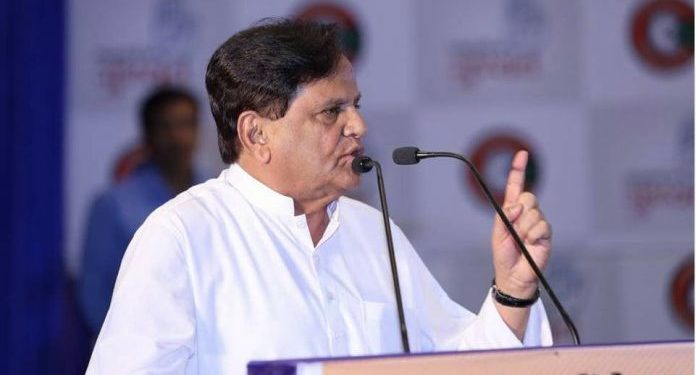TED NewsDesk, New Delhi: Mr. Ahmed Mohammedbhai Patel, Member of Parliament, Rajya Sabha, insisted on establishing a committee for setting up guidelines and protocols for the virtual classroom method, amid the COVID crisis.
The schools are closed since March, thus leading the country to follow the online teaching-learning process. As a result, the senior leader of the Indian National Congress suggested that the government should form a crew to set rules for organizing online classes in Schools. Besides, he demanded the Centre to support candidates from economically weaker and marginalized sections of the society. He said the government should increase its expense students, especially the ones with poor financial conditions, and should provide them smartphones and computers or laptops.
“We demand from the government to constitute a task force to study how online classes are putting severe mental stress on students as well as their families. The central government should come out with national guidelines after consulting states as to what should be the rules under which online classes be held,” he emphasized.
He accused the private and public institutions of carrying out virtual classes, amid Coronavirus lockdown, to legitimize the collection of fees.
“This is creating an immense mental and financial burden on economically backward families. In poor homes, either they don’t have a laptop or computer or if they do have a smartphone, it is usually shared by many family members,” Patel claimed.
He noted, “Digital India should not become an instrument for the “digital divide” between the rich and poor.”
Only 9 percent of students can avail internet facilities: Patel
Adducing the results of a survey, during Zero Hour, he said only 24% of Indian houses have well-functioning internet facilities and only 9% of children can use the internet. Around 3% of candidates have laptops or desktops, whereas 4% of them have Android phones with unlimited data plans, as per the Gujarat Education Department’s survey.
In a survey by the Delhi government, 80% of households lack digital facilities like laptops or PCs, Patel stated. Besides, according to a survey by Telangana Teachers’ Federation, 70% of students participating in online classes remain clueless about the subject matter being taught. Pointing out the availability of data and digital resources in states like Bihar, Madhya Pradesh, and Odisha, he alleged that the condition in these states stands nowhere when compared to Himachal Pradesh, Delhi, or Goa.
In his Zero Hour submission, he went on adding, “Rather than changing the education syllabus, the central government must increase spending to provide digital support for poor students.”
He also targeted Modi Government for not being able to fulfill the promise, made in 2014, of facilitating 2.5 lakh gram panchayats with broadband connectivity by 2017. Only 23,000 panchayats have been able to connect till now, as per his record.
India is yet to achieve a lot in the education sector. Education has largely been affected due to the lockdown in the country. In times like these, kids are struggling to cope up with the online classes, especially the ones with weak financial backgrounds. This is problematic for a country’s development and growth.








